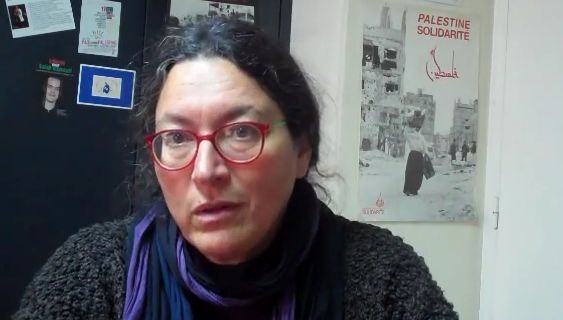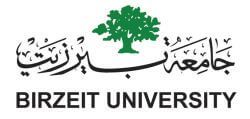What’s wrong with this picture?
Israeli journalist Amira Hass was covering a conference at Bir Zeit University. She was perfectly up front with the Palestinian student organizers helping run the event, registering that she was from Haaretz.
Hass says she has covered events and interviewed Palestinians at the Ramallah campus for 20 years, and has friendly relations with many of them. There was no reason to believe that Tuesday’s conference, “Alternatives to Neo-Liberal Development in the Occupied Palestinian Territories — Critical Perspectives,” would be different from other academic confabs she has covered.
In the past twenty years, I have entered Birzeit University dozens of times, and have been an audience member at various academic conferences there. I have also interviewed faculty members both on and off campus.
But Tuesday was different.
Two of the lecturers asked Hass to leave.
Israeli Jews are not allowed on campus. Students might break into the conference hall to protest her presence. Palestinian students need a safe Israel-free sanctuary. Hass supposedly needed to leave for her own protection. Rumors were spreading that the veteran Haaretz columnist was attacked.
Hass’s friends sympathized — some even left the conference in protest — but the bustling lobby of the Said Khoury Development Studies Building wasn’t the time or place to debate university policy.
So she left.

I can relate to the feeling of being a reporter in a room full of people who don’t necessarily want you there. You feel the eyes on you. You mentally prioritize the info you need in case you have to make an early exit. You imagine witty one-liners shutting up the nudniks.
Even if you’re nervous on the inside, you do your job because that’s what professional journalists do.
And if you have to leave, you leave. The story will still get written.
Hass’s reaction was to justify her shameful treatment:
I understand the emotional need of Palestinians to create a safe space that is off limits to citizens of the state that denies them their rights and has been robbing them of their land. As a leftist, however, I question the anti-colonialist logic of boycotting left-wing Israeli Jewish activists. In any case, such leftists do not seek kosher certificates while opposing the occupation and striving to put an end to the Jewish regime of privileges.
Problem is, this isn’t really about “safe space,” as evidenced by all the time Hass previously spent at Bir Zeit.
This is about the powerful Palestinian movement against the normalization of ties with Israel. This anti-normalization movement opposes entrepreneurs who work with Israelis, grass-roots peace delegations, even non-political feelgood events like a soccer clinic given by Lionel Messi and FC Barcelona.
And on several occasions, the anti-normalization movement has threatened Hass’s professional colleagues, Israeli journalists working in the West Bank. Examples include:
- Disrupting a Ramallah press conference over the presence of Israeli journalists.
- Threatening the life of veteran Israeli-Arab journalist Mohammed Najib, who doing man on the street interviews in Ramallah for i24 News.
- The near lynching of Times of Israel reporter Avi Issacharoff.
- Boycotting International Press Freedom Day activities because they were sponsored by the US consulate.
Hass visited Bir Zeit as a reporter, looking for a story and keeping up with the pulse of the Palestinians. That’s what journalists do in the public interest. But when Hass explains away her expulsion from Bir Zeit, she’s writing as an activist, not as a journalist. (In the culture of Haaretz and its openly stated politicized agenda, that may not be surprising.)
Her response isn’t as extreme as Robert Fisk either (after being beaten up by Afghan refugees in 2001, the British journalist famously wrote, “If I was an Afghan refugee in Kila Abdullah, I would have done just what they did. I would have attacked Robert Fisk. Or any other Westerner I could find.”), but she’s putting herself on a slippery slope vis-a-vis Israeli reporters who have been attacked by anti-normalization hotheads in the past and face similar threats in the future.
 Bir Zeit’s statement responding to the incident skirts the policy of the campus as an Israeli-free zone.
Bir Zeit’s statement responding to the incident skirts the policy of the campus as an Israeli-free zone.
The university community takes pride in observing the academic boycott of Israel. However, this boycott applies to institutions, not individuals, let alone individuals who have distinguished themselves by being on the side of justice and humanity, as has journalist Hass.
But Hass was there in her capacity as a reporter for Haaretz, an Israeli institution.
What Bir Zeit’s really saying is only journalists we like are welcome.
As a journalist, that policy should be untenable for Hass, even if (or especially because) she’s the beneficiary. But as an activist, Hass ultimately gives her assent.
Image: CC BY-SA HonestReporting, flickr/Keoni Cabral, Hass via YouTube/FrancePalestine

